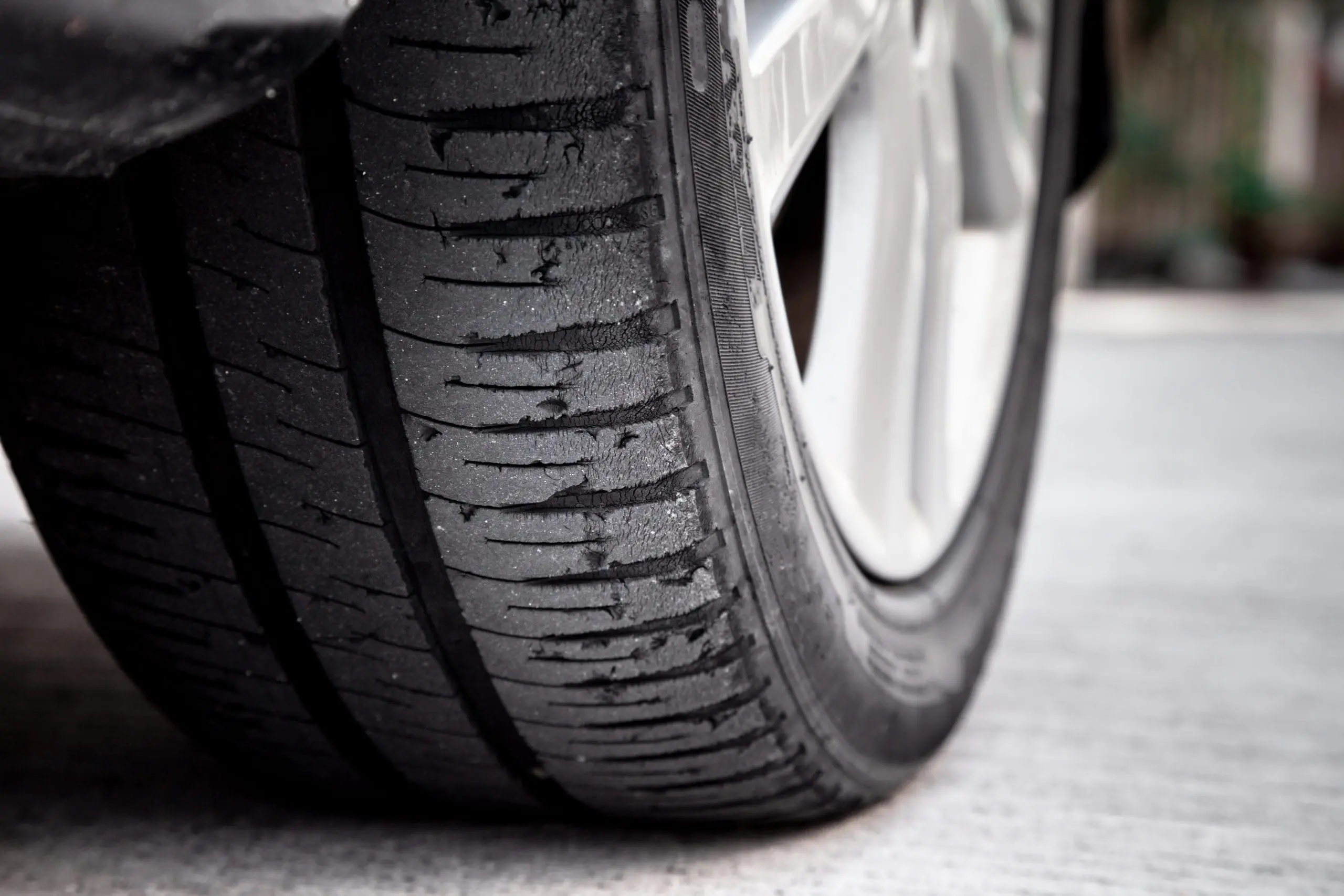Unfortunately, even the best of tires do not last forever…but how long DO tires last, you ask? That depends on a number of factors including road conditions, driving style, treadwear rating, and more. On average, you can expect to get around 50,000 to 60,000 miles out of a decent set before it’s time to replace your tires. Of course you can certainly get far beyond that if you invest in a higher quality tire, drive modestly, keep tires properly inflated, and have just a bit of luck on your side as well. On the flip side, there are countless variables that keep you from hitting that 50K milestone and have you back in our showroom probably quicker than you’d like to be. In short, there are no guarantees when it comes to tire longevity.
NOTE: If your vehicle doesn’t see a lot of driving action, it’s still suggested that you replace your tires every ten years at minimum regardless of tread or miles driven.
Things to Consider When Buying Tires
When the time comes and you do have to buy new tires, walking into a tire shop can be pretty overwhelming. It’s always best to find a trusted tire retailer that will be straight with you on tire features, advantages, and disadvantages while quoting a price that is fair. It can be easy to be taken advantage of if you don’t have at least a general idea of what you need. That being said, here are perhaps the most basic of variables you’ll want to keep in mind when shopping for new tires.
The Brand
You certainly don’t have to be well-versed in the histories of major tire manufacturers, but there is some justified comfort in putting some trusted brands on your ride. Companies like Michelin, Bridgestone, Firestone, and Goodyear (and plenty more) have stellar reputations when it comes to quality and innovation. This is one arena in which you might not want to take a shot on an unknown company.
The Treadwear or Mileage Warranty
A treadwear or mileage warranty can be a nice feature and can certainly give you at least SOME kind of idea as far as how many miles you can expect to get out of your new tires. On paper, a tire with an 80,000-mile warranty sure seems more appealing than a tire with a 60,000-mile warranty. But just remember that these are NOT guarantees. You might get more and you might get less out of your tires. Generally, if you get substantially less than the warranty, the manufacturer will give you a prorated credit towards a new set providing you haven’t violated any of the fine print stipulations associated with the warranty (so pay attention).
The Cost
There’s no way around it. Tires are going to be expensive no matter how you look at it. And while you probably don’t have to go with the top of the line most expensive option on the market, you also shouldn’t settle for the cheapest. Your local tire shop should be able to steer you in the right direction in terms of getting a quality product for a decent price.
How to Extend the Life of Your Tires
The best thing you can do to get the most life out of your tires is to have them properly inflated and rotated regularly (approximately every 3,000 to 5,000 miles or roughly every six months). This will ensure that the tread wears down as close to evenly as possible. You’ll also want to have your tires inspected every few years even if they appear fine and aren’t negatively affecting your driving. Following these protocols as well as taking your vehicle in for service at the first sign something isn’t right are the best actions you can take to keep your tires serviceable and safe for as long as possible.
So how long do tires last? There’s no way to know for sure. All you can do is them the proper care by bringing them in for regular maintenance. That’s the easiest—and most effective—way to maximize your tire’s lifespan. Reach out to Telle Tire today to book an appointment.


